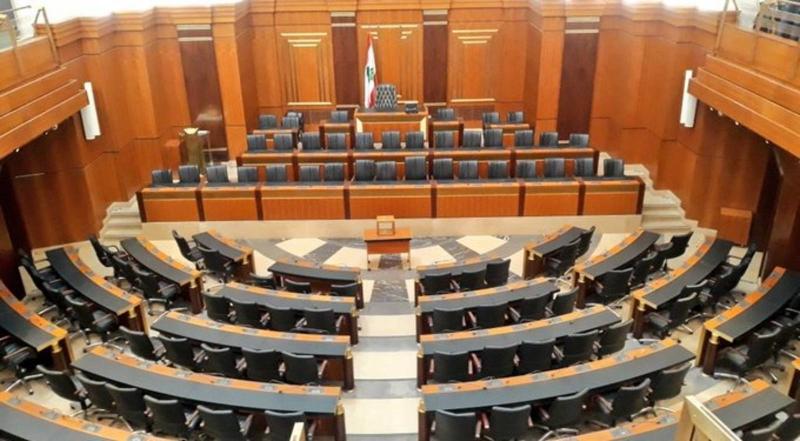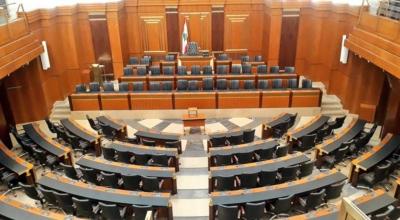Contrary to the impressions that some internal political entities had regarding the onset of a "decisive" changing phase in the course of the presidential crisis following the recent development in the stance of Speaker of the House Nabih Berri in openly supporting the nomination of "Marda Movement" leader Suleiman Franjieh, the prevailing data in recent hours indicates that the upcoming days do not seem likely to witness developments of an "extraordinary" nature that would disrupt the monotony of the crisis, unless a statement of exceptional character is issued by the Secretary General of "Hezbollah," Sayyed Hassan Nasrallah, in his anticipated speech today. However, this does not obscure the reality of the exacerbating division crisis, but rather reflects an acute crisis of distrust that has begun to mark the landscape of power distribution, positions, and stances within the Parliament, forewarning of further complications and obstacles that render it unlikely to approach a solution or settlement to the political deadlock hindering the election of a president for the republic.
Concerned parties in the parliamentary and political scene point out that the state of enmity emerging between the Speaker and opposition forces, especially the major Christian parliamentary blocs, has cast heavier shadows on any potential to transition the crisis from complete stagnation to searching for pathways towards resolution. Perhaps what complicates the crisis further is that the announcements made by Berri, and the reactions they provoked, revealed the strong and clear interconnection in linking this storm to the direct settling of scores between the Speaker and opposition forces and large Christian blocs, which have restricted these blocs’ legislative sessions and prevented them from convening, thereby politically and constitutionally encircling the Speaker's role personally.
While Berri's response was sharp in raising the stakes concerning the presidential issue, that does not imply, according to the same sources, that there are grounds for a radical shift in the rules of the presidential race as many believed. Instead, the days following Berri's announcement of support for Franjieh's candidacy did not reveal any extraordinary developments that transcend Berri's objectives in targeting his new "opponents" from parliamentary and political factions. Therefore, unless Sayyed Nasrallah publicly and unequivocally announces today his explicit endorsement of Berri's position and subsequently the support of Franjieh's nomination, the "rules of engagement" will revert to their traditional rigid framework until further notice, with an added complication regarding the rigidity of the emerging front between the opposition and the Speaker.
The statements from the past weekend indicated a solidification of the opposition forces' tone toward the 8 March team's push for Franjieh's candidacy, as it became evident that most opposition forces adopted the decision to disrupt the legal quorum for sessions that might indicate the possibility of a breakthrough in favor of Franjieh. In this context, informed political circles noted that the arena of confrontation now revolves around the presidential struggle stemming from an exchange of the weapon of quorum disruption, which reflects the underlying reality of the absence of any external pressure so far to expedite ending the crisis, thus undermining all promotional claims that some factions attempted to leverage to suggest there are favorable external positions or circumstances facilitating their thrust to impose their candidate.
In this regard, the head of the "Lebanese Forces" party, Samir Geagea, stated that he was not surprised by Berri's endorsement of the "Marda Movement" leader, emphasizing that he had been aware since the onset of the constitutional period of six months for electing a president that the serious and actual candidate for Hezbollah, Berri, and their allies was Suleiman Franjieh. He declared, "Based on that, our reaction was to reject the artificial calls for dialogue, as they would be a waste of time as long as the other side insists on its candidate. The biggest evidence is what Berri has issued."
Regarding his stance on the disruption of electoral sessions, Geagea noted that "this position has nothing to do with any new developments or data regarding the likelihood of Franjieh's election, reiterating that 'until recently, we were still demanding adherence to constitutional rules and holding open election sessions, and we were ready to accept their outcome, even if their candidate won. But after five months of presidential vacancy, and after they decided to change the rules of the democratic game and disrupt the constitution until their timing is suitable, this is what we absolutely refuse, believing that humanity is one thing, compliance is another, and oppression is yet another. No one should expect us to be foolish and accept that they disrupt at their convenience, only to return when they secure favorable conditions for their candidate's success and ask us to facilitate his accession.'"
Additionally, the head of the "Phalange" party, MP Samy Gemayel, considered that "Speaker Berri is no longer an impartial Parliament President; he has become a political team that opens the Parliament as suits his team. Therefore, we must closely monitor the voting process, and suffering for a month or two to elect a president is better than suffering for six years under a term akin to the previous one." He affirmed, "We will disrupt any arranged session to bring Hezbollah's candidate to power."
In light of these atmospheres, the position of Bkerke has notably escalated, as reflected in the sermon given by Patriarch Mar Bechara Boutros al-Rahi yesterday, where he harshly criticized "a political group devoid of any responsibility, practicing politics solely for personal and factional interests, utterly disregarding the common good and the people who entrusted them with this public responsibility according to the preamble of the constitution." He stated, "It is truly painful to witness the absence of state men among us, evidenced by the fact that none of the politicians, parties, or parliamentary blocs present a single serious project to revive Lebanon from its total collapse. When some of them speak, they utter enmity, hatred, militia mentality, personal insults, and sow discord and divisiveness, which lays thorns and mines on the path of electing a president."
He continued, "The election of a president is stumbling because, unfortunately, the dispute revolves around his allegiance either to the so-called resistance faction or to the sovereignty faction. The sole solution lies in exiting this equation and working on the part of the people to elect a national president free from any connections, bias, faction, or axis. This is the president Lebanon needs to gain the trust of everyone at home and the confidence of all nations abroad, enabling this president to lead the necessary reforms required to gain international and regional aid."
Away from internal climates and crises, a significant development occurred at the Blue Line yesterday as a confrontation took place between the army and an Israeli armored patrol that the army forced to retreat and withdraw after it violated the Blue Line. The Army Command – Directorate of Guidance declared that the Israeli patrol breached the Blue Line near Aita al-Shab, approximately one meter over, prompting a patrol from the Lebanese army to intervene and compel the hostile patrol to withdraw beyond the Blue Line towards occupied Palestinian territory. A patrol from the United Nations Interim Force in Lebanon also arrived to verify the breach.
The deputy director of the UNIFIL Media Office, Candice Ardil, confirmed that UNIFIL forces are striving to reduce tensions, adding, "We urge all parties and all present in the area to maintain calm." She concluded, "Any actions near the Blue Line are highly sensitive, and we continue to call on all parties to coordinate with UNIFIL forces to avoid actions that lead to unnecessary tensions."




